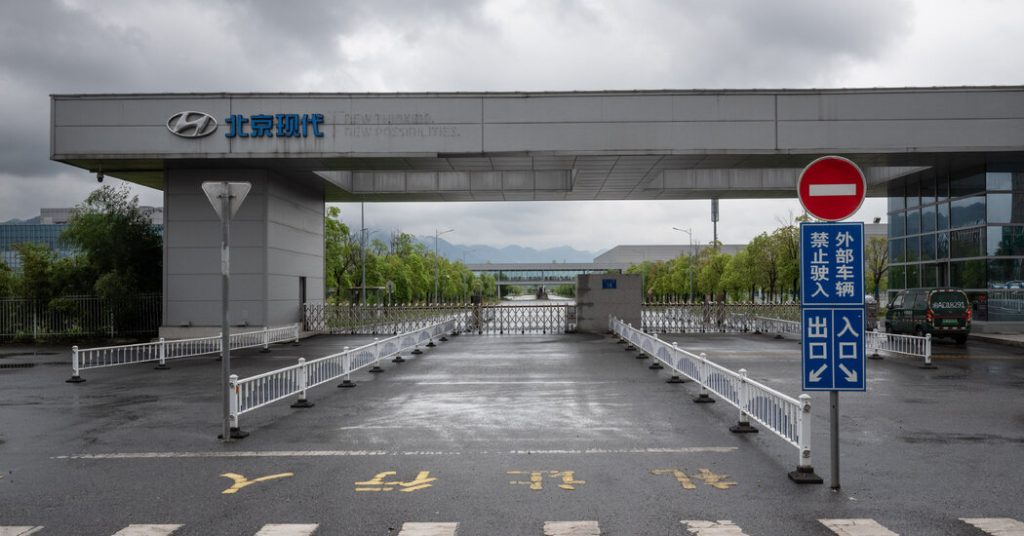On the outskirts of Chongqing, China, sits a massive former car factory complex that symbolizes the country’s overabundance of car manufacturing facilities. Built by Hyundai and a Chinese company in 2017, the complex was designed to produce gasoline cars but was sold at a fraction of its cost as sales dropped due to the rising popularity of electric vehicles. China has over 100 factories capable of producing 40 million internal combustion engine cars annually, far exceeding demand, with sales of gasoline cars declining significantly in favor of electric models.
As electric vehicles become more popular in China, dozens of gasoline-powered car factories are struggling to stay afloat or have already closed down. The country is in the early stages of transitioning to electric vehicles, a shift that is expected to lead to the closure of many existing factories. The outcome of this transition will have significant implications for China’s economy, given the size of the auto industry and its impact on the workforce, as well as its effects on global car manufacturing due to China’s position as the world’s largest car market and exporter.
While China’s electric vehicle companies are investing heavily in new factories, there is already overcapacity in electric car manufacturing, albeit less than in gasoline-powered cars. Price cutting is common in the electric vehicle market, leading to declining profits for companies like Tesla and BYD, as well as increased price competition among automakers. Many of China’s endangered factories are located inland, making it expensive to export vehicles to coastal areas for overseas markets.
Traditional car factories in China are struggling to compete with newer electric vehicle facilities that qualify for subsidies, leading to a significant drop in gasoline car sales and production. Hyundai, one of the companies hit hard by the shift to electric vehicles, sold its Chongqing factory at a steep discount, demonstrating the challenges faced by foreign automakers in China’s changing market. Cities like Chongqing, which rely heavily on gasoline car production for jobs, are grappling with the transition to electric vehicles, which require fewer workers due to their simpler components.
As the auto industry in China undergoes a revolution towards electric vehicles, job prospects for semiskilled workers in traditional car factories are becoming scarcer. Workers are facing challenges in finding employment as demand for gasoline-powered cars declines and electric vehicles become more dominant in the market. Despite the shift towards electric vehicles, most factory workers are migrants who can easily move to other cities or industries for work, minimizing the impact of factory closures on the local community.
While China’s electric vehicle market continues to grow, the pace of growth has slowed due to consumer spending constraints, particularly in the wake of a housing market crisis. The industry is experiencing challenges in managing overcapacity, price competition, and the transition from gasoline to electric vehicles. As the global car market evolves, China’s position as a major player in the auto industry will have far-reaching effects on the economy and workforce, both within the country and abroad.















